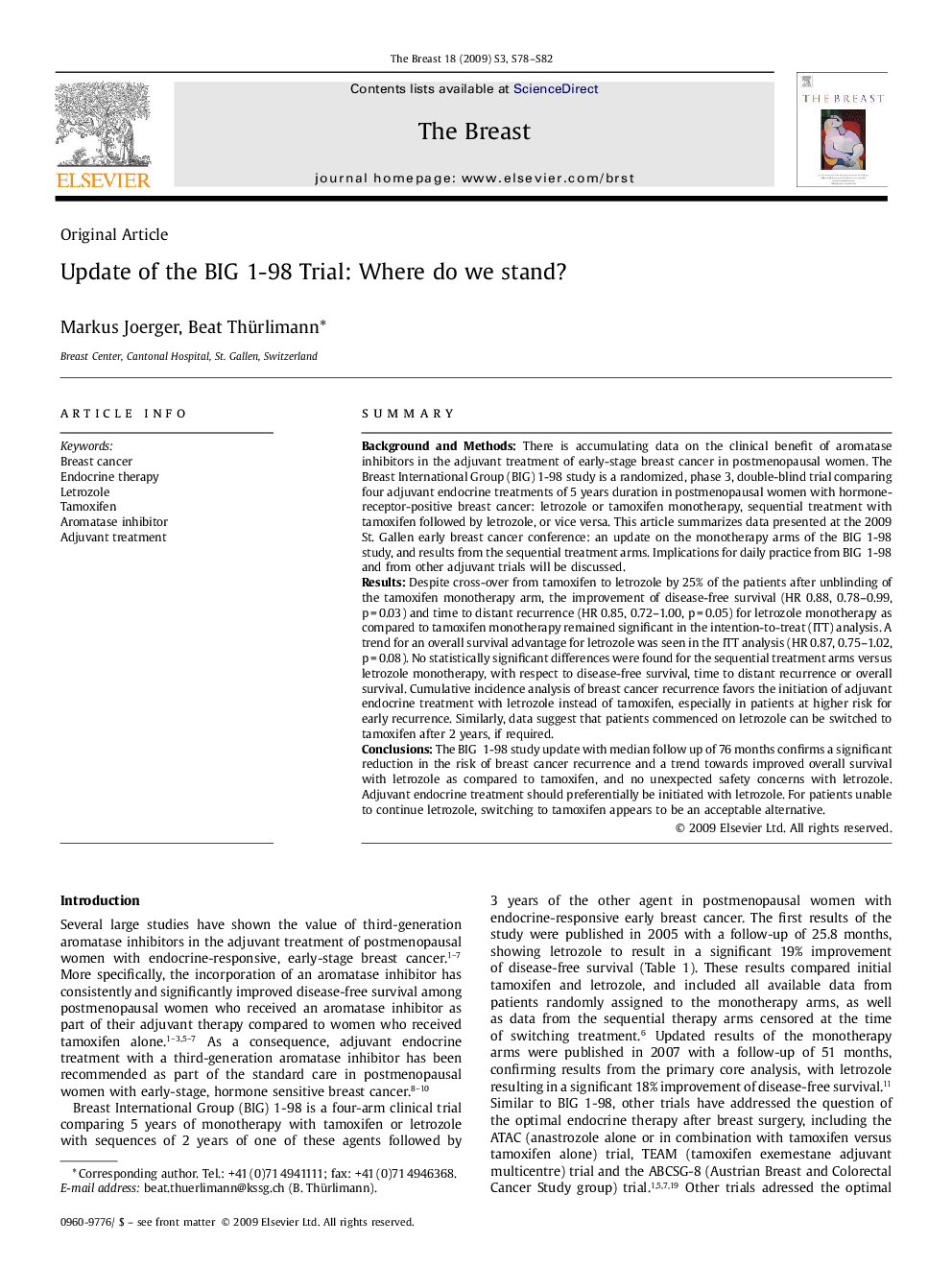| کد مقاله | کد نشریه | سال انتشار | مقاله انگلیسی | نسخه تمام متن |
|---|---|---|---|---|
| 3909447 | 1251217 | 2009 | 5 صفحه PDF | دانلود رایگان |

SummaryBackground and MethodsThere is accumulating data on the clinical benefit of aromatase inhibitors in the adjuvant treatment of early-stage breast cancer in postmenopausal women. The Breast International Group (BIG) 1–98 study is a randomized, phase 3, double-blind trial comparing four adjuvant endocrine treatments of 5 years duration in postmenopausal women with hormone-receptor-positive breast cancer: letrozole or tamoxifen monotherapy, sequential treatment with tamoxifen followed by letrozole, or vice versa. This article summarizes data presented at the 2009 St. Gallen early breast cancer conference: an update on the monotherapy arms of the BIG 1–98 study, and results from the sequential treatment arms. Implications for daily practice from BIG 1–98 and from other adjuvant trials will be discussed.ResultsDespite cross-over from tamoxifen to letrozole by 25% of the patients after unblinding of the tamoxifen monotherapy arm, the improvement of disease-free survival (HR 0.88, 0.78–0.99, p = 0.03) and time to distant recurrence (HR 0.85, 0.72–1.00, p = 0.05) for letrozole monotherapy as compared to tamoxifen monotherapy remained significant in the intention-to-treat (ITT) analysis. A trend for an overall survival advantage for letrozole was seen in the ITT analysis (HR 0.87, 0.75–1.02, p = 0.08). No statistically significant differences were found for the sequential treatment arms versus letrozole monotherapy, with respect to disease-free survival, time to distant recurrence or overall survival. Cumulative incidence analysis of breast cancer recurrence favors the initiation of adjuvant endocrine treatment with letrozole instead of tamoxifen, especially in patients at higher risk for early recurrence. Similarly, data suggest that patients commenced on letrozole can be switched to tamoxifen after 2 years, if required.ConclusionsThe BIG 1–98 study update with median follow up of 76 months confirms a significant reduction in the risk of breast cancer recurrence and a trend towards improved overall survival with letrozole as compared to tamoxifen, and no unexpected safety concerns with letrozole. Adjuvant endocrine treatment should preferentially be initiated with letrozole. For patients unable to continue letrozole, switching to tamoxifen appears to be an acceptable alternative.
Journal: The Breast - Volume 18, Supplement 3, October 2009, Pages S78–S82